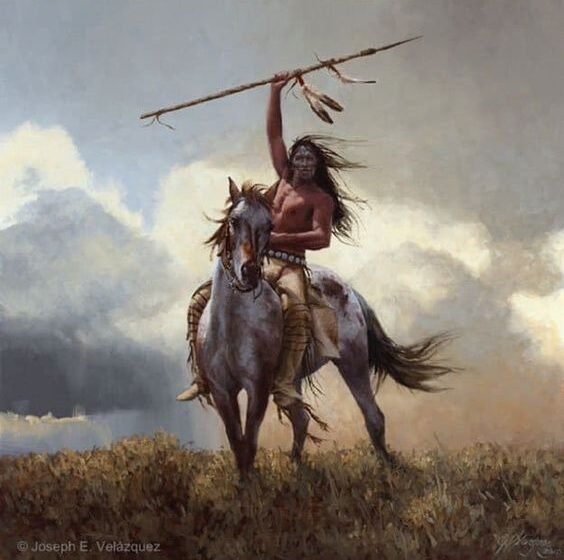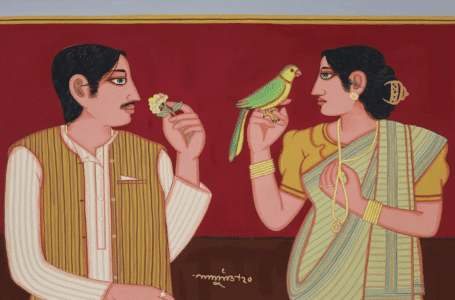Rooted in Resistance: The Untold Story of Mapuche Resistance

Rooted in the rugged terrain of southern Chile and Argentina, there lies people whose name encapsulates their deep connection to the land they inhabit: as they call it, The Mapuche. This word is derived from a language called Mapudungun, and the word is of utmost importance, as it literally means, “the people of the land.” This does not just tie them to the territory but also serves as an important reminder of their enduring struggle for autonomy and justice.

The history of people belonging the Mapuche, is one of resistance and struggle. It is also marked by their steadfast determination to defend their ancestral lands against colonial encroachment. They have faced everything from the arrival of the Spanish conquistadores, to the Chilean military invasion. Their story is of defiance in the face of oppression, that should be known world-wide.
To describe Mapuche, there is a term often used, called “Araucans” which is a name given upon them by European explorers who marveled at their tenacity at repelling Spanish incursions. They have successfully defended their territories for centuries against formidable colonial power. After the Chilean independence in the year 1810, the Mapuche went on a precarious journey to safeguard their sovereignty in the face of expanding settler colonialism. However, in the modern era, the Mapuche continue to confront a myriad of challenges, that ranges from land dispossession and environmental degradation to cultural marginalization and socio-economic inequality.

Their struggle against various external forces such as, Spanish, Chilean or Incas has been marked by a series of violent confrontation and uneasy peace treaties. However, December 4th, 1866 is the starting point of Mapuche epic. On this particular date, the Chilean National Congress passed a law establishing indigenous reservations, but alas! It was delayed for the next 18 years until the Chilean army forcible pacified the territory that was historically occupied the Mapuche. This annexation was the beginning of a profound organization of Mapuche society, culminating in the establishment of what we now know as “communities”.
The Chilean administration, with the help of bureaucratic methods tried to address land disputes arising from this unjust redistribution. Starting in the late 19th century, several commissions, courts and institutions were tasked with resolving these conflicts. However, even after issuing the issuing the community ownership deeds, which were theoretically non-transferable, usurpation of Mapuche land persisted, which lead to a countless complaints and grievances documented in archival records. These disputes not only showcase the extent of the land grabs but also reveal the failure of the official channels to provide meaningful redress.

Moreover, the random resettlement of Mapuche families under appointed chiefs further exacerbated tensions, as communities found themselves fragmented and marginalized. These conditions sowed the seeds of resistance among the Mapuche, setting the stage for ongoing struggles against systemic injustice and dispossession
Now, even after the loss of sovereignty and land, this community managed to regroup and organize within two decades of their military defeat. What they did was, form a political organization that successfully elected representatives to the Chilean parliament from the 1920s to the 1950s. these selected politicians focused on key issues such as reclaiming usurped land, ending abuses against their communities and striving for equality in educations in comparison the Chileans.

These Mapuche leaders went on and formed alliance with various political parties across the ideological spectrum. They even adapted their strategies to the prevailing political climate. While these efforts proved to be successful, for instance the appointment of Mapuche minister Venancio Conuepan, and the passage of laws aimed at benefiting indigenous people, who also faced challenges. As a response to the ongoing land disputes, the Chilean government established the division of indigenous affairs in 1952, led by the Mapuche officials. This agency was given the task of overseeing land restitution efforts, as well as promoting community organization and sustainable land use through initiatives like cooperatives and economic enterprise.

These governmental organizations, along with the Mapuche political parties contribute to a heightened politicization of the Mapuche throughout the 20th century. Their collective efforts focused on addressing the legacy of land conflicts stemming from the establishment of communities as well as advocating the rights and well-being of a historically marginalized and impoverished population.
Coming back to the year 1960, land reforms in Chile fueled Mapuche politicization, as they aligned themselves with peasant movements while emphasizing their distinct demands. As Chilean society underwent a socialist shift under the president Allende, the Mapuche decided to capitalize this movement and reclaim hundreds of thousands of hectares from large landowners and actively participated in drafting of new legislation. This represented a significant departure from past approaches and recognized the importance of cultural practices and traditions in the country’s development. This period also marked as a genuine assertation of Mapuche power across different spheres, just like the black power movement among African-Americans in the United States.

The 1973, coup that took place in Chile abruptly stopped the Mapuche land recovery and even their political mobilization. Despite the repression, their leaders engaged in international forums and exchanged ideas with other indigenous groups. Meanwhile, in southern Chile, capitalist forestry marginalized the Mapuche community, and left them as bystanders in their own land.
Chile had transitioned to a democracy in the early 1990s, and along with that the autonomist movement gained momentum among the Mapuche. They sough to redefine their relationship with the Chilean state and amplify the voices of the marginalized people across the continent. With the law under consideration denying non-national territorial claims, Mapuche organizations turned to politics, drawing inspiration from global struggles. Their focus shifted from merely reclaiming land to asserting control over it and revitalizing traditional forms of governance and organization.

Territoriality became central to the Mapuche cause and went beyond a mere discourse to encompass concrete actions like reclaiming productive land, asserting territorial control and advocating for specific policies. Despite many Mapuche youth migrating to cities, there’s always a longing to return to their ancestral homelands, even if experienced mostly during holidays.

From Spanish conquest to Chilean military invasions, the Mapuche’s have endured violence and displacement. The 1886 law, that established indigenous reservations further marginalized them and caused a gradual loss of sovereignty and land. However, as we came to the 1920s, their political organizations emerged and advocated for land recovery and their rights. After which the 1973 coup happened, that halted their progress but the Mapuche leaders emerged in international forums, seeking support for their cause. Chile’s transition to democracy took place and along with it the autonomist movement. in conclusion, the Mapuche struggle for autonomy and justice is a brilliant example of their resilience and determination in the face of centuries of colonial oppression and land dispossession. Despite facing all the setbacks and repression, they have mobilized politically and asserted their rights to land and self-determination. As they continue their quest for territorial control and cultural revitalization, the Mapuche serves as an inspiration to all the people worldwide. Their strory underscores the importance of recognizing and respecting the rights in building an inclusive society for all.


